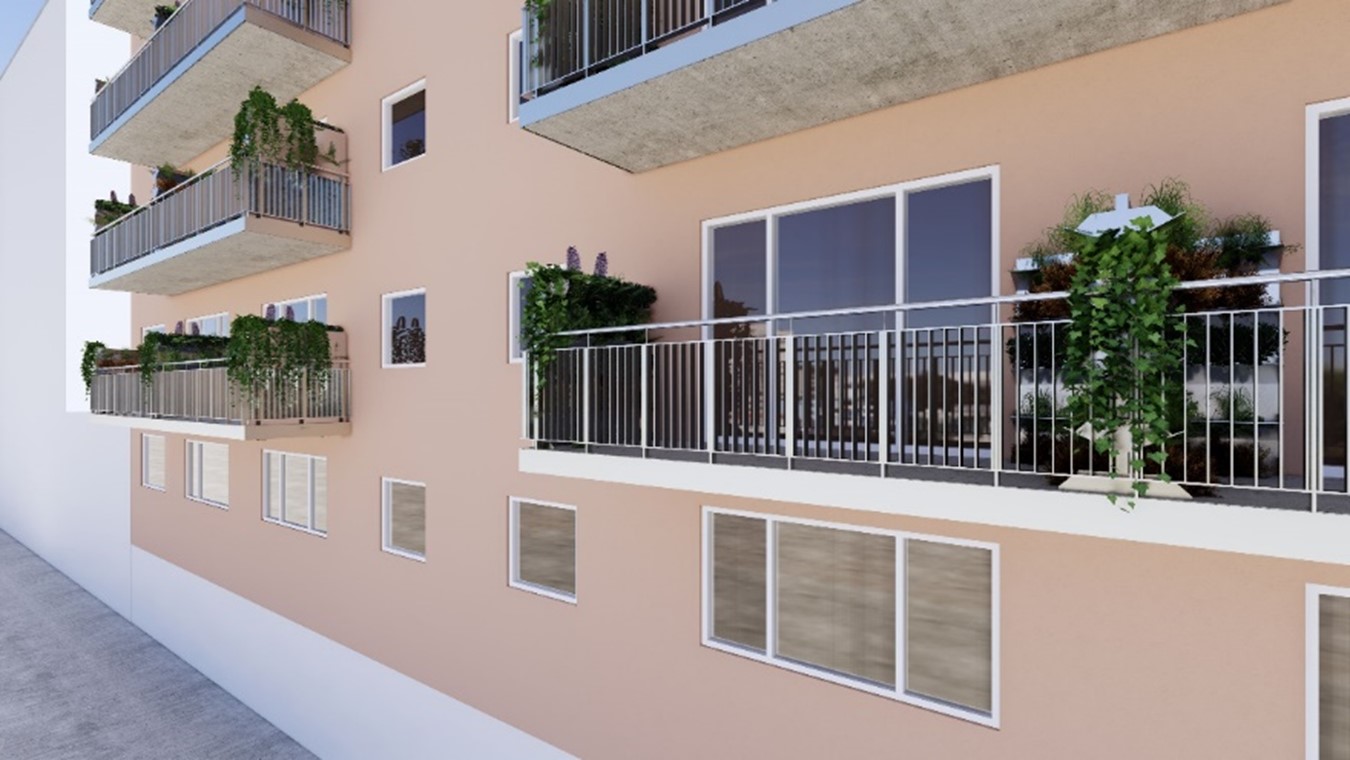ESSBAR – Edible balcony gardens for retrofit – Vertical Greening Technologies for the City
Short Description
Status
ongoing
Starting point / motivation
Climate change threatens urban quality of life. Cities of the future need innovative urban greening technologies in order to maintain temperature comfort for residents, to reduce heat island effects and to buffer rainwater peaks during heavy rain events. Newly constructed buildings offer little potential for such measures, as most of the buildings have already been built. Therefore, it's clear: greening measures must also be taken on existing buildings!
Contents and goals
ESSBAR offers an innovative solution concept for the greening of existing buildings by creating new outdoor spaces by retrofitting balconies to existing buildings. In addition, innovative vertical garden systems (for vegetables, herbs, etc.) are integrated into these balconies. These climate-effective and edible systems supplied with rainwater from a rainwater management system represent a completely new option when it comes to making existing buildings greener.
With the planned innovative solution, climate change adaptation will be implemented in several ways: on the one hand by means of a cooling effect (shading, evaporation, reduction of urban heat islands, improvement of the microclimate) and on the other hand by buffering heavy rain events (water storage, rainwater management).
Methods
The implementation of this concept requires a complex system integration of components for the construction of balconies, vertical gardening systems and rainwater utilization solutions. The desired modularity of balconies and greening solutions increases the interface complexity and requires new approaches and the development effort - the concept is therefore tested on a functional model. The functional model will be equipped with measuring technology in order to clarify technical questions of system integration and to scientifically examine microclimatic effects and vegetation-related performance. These results will flow into the preparation and implementation of the demonstration object Karmarschgasse 59-61 in the 10th district of Vienna. The residents and future users are integrated into the process from the start. They are crucial to the success of the project.
Expected results
The very first demonstration of edible, vertical balcony gardens for the renovation of the described social housing at Karmarschgasse 59-61, the broad visibility and the intended multiplication of the solution produce relevant results for many stakeholder groups.
At the same time, a scalable solution for a rapidly growing demand for additional outdoor spaces for multi-party residential buildings is being created, which in the course of renovations also includes climate adaptation measures in addition to the thermal renovation of building envelopes. The focus will be on increasing the quality of life, biodiversity and well-being of city dwellers. The vertical gardening technology used in the project will be specialized in edible plants and should thus make a valuable contribution to the self-sufficiency of the cities and the health of their residents.
Project Partners
Project management
Rhomberg Bau GmbH
Project or cooperation partners
- Sozialbau AG
- WoodRocks Bau GmbH
- Herbios - Vertikalgarten GmbH
- GRÜNSTATTGRAU – Forschungs- und Innovations GmbH
- GEOplast - Kunststofftechnik GmbH
- BOKU – Universität für Bodenkultur Wien
- Donau-Universität Krems
- GREENPASS GmbH
Contact Address
Project manager
DI Stefan Vonbun
Mariahilfstraße 29, 6900 Bregenz
Tel.: +43 664 6296997
E-Mail: stefan.vonbun@rhomberg.com
Website: www.rhomberg.com

